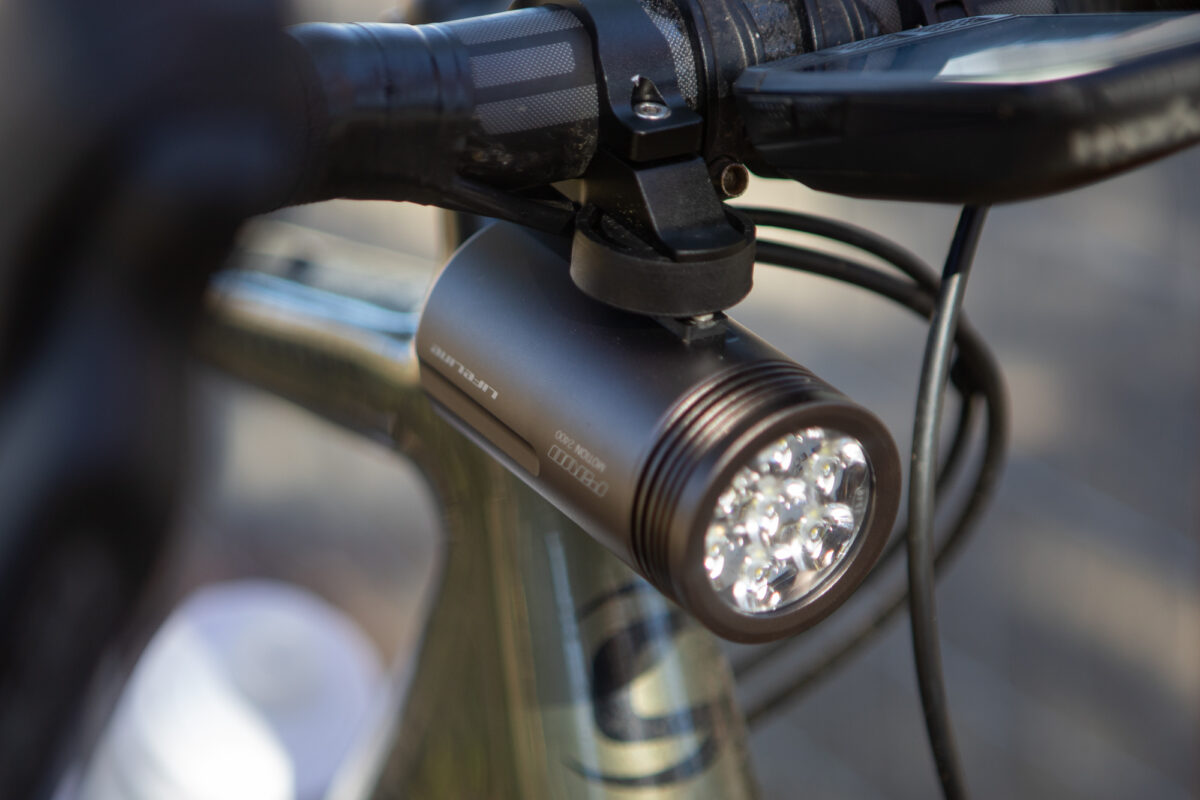
For years I’ve been on a quest to find the best front bike light for a particular type of riding. I look for lights that will help me ride through the night on unlit roads. There are tons of options for great front lights that will get you across town; but if you want to ride through the night, the options are less plentiful.
After having tested a lot of options I’ve settled on three lights. My plan was to share a buyer’s guide similar to what I wrote about children’s bike helmets. Unfortunately, one of the lights has been hard to come by. While I wait for that light, I want to talk about the other lights one-by-one. The first one is an option that those in the U.S. probably aren’t familiar with. The Lifeline Pavo Motion 2400 sells through Wiggle or Chain Reaction Cycles (major UK retailers) with huge max lumens at a relatively budget-friendly price of $169.99.
What does it offer?
The way I like to think of the Lifeline Pavo Motion 2400 is that it answers the kind of question you might see pop up in the comments. “Why won’t they get rid of all the features I don’t need and just make a simple, bright, light?” Someone did, and here it is.
There are only two modes: “motion control” and “constant”. When in motion control mode the full 2400 lumens is available and an onboard gyroscope halves power when it senses the bike has stopped. Constant mode just shines at the set power.
The shape is a simple cylinder built almost entirely from anodized 6061 aluminum (more images below). Tip to tail it’s a monochromatic gunmetal grey that’s only broken up by a few small details that keep it from rolling on a flat surface and help dissipate heat. The rear panel holds the micro-usb charging port behind a rubber cover. The front panel houses seven Cree LED units behind a glass lens.
At the base of the light is the mounting hardware. Attached to the light you’ll find a small plastic circle with two tabs. The tabs fit into a matching void in the mount then a quarter turn locks the light in place. The part of the mount that circles the handlebars is aluminum and secures with two hex head screws that tighten in opposite directions. Tighten one from below and one from above and alternate between the two for even pressure.
Cycling through the power output modes requires a single press of the button. Whatever power and mode you’ve selected will remain selected through a power cycle.
Power options are: Motion control Mode 1 = 2400 L / 1200 L, Mode 2 = 1200 L / 600 L, Mode 3 = 600 L / 300 L then two flashing modes which differ only in the length of the flashes. Constant Mode High = 100% / 2000 L, Medium = 50% / 1000 L, Low = 25% / 500 L, and Saving Mode = 10% / 250 L.
Advertisement
Why do you need so much power?
Riding at speed on an unlit road I like to have around 800 lumens available. I find it uncomfortable to be at a lower power than that but I don’t need more. There’s a ton of quality lights that have a max lumen rating right about there. The reason you want more is because a more powerful light will be a bigger light with a bigger battery. When you power it down to half you get a nice long burn time.
Burn times: 2000 lumens = 1hr 50 mins, 1000 lumens = 3hrs 30 mins, 500 lumens = 6 hrs 30 mins, 250 lumens = 12hrs+, flashing = 16hrs+
Take a minute to glance back and forth between the power modes and the burn times and think about how many lumens you need for riding at night. A lot of people commute with 500 hundred or even 250. All that burn time means less charging, or if you need more power you can drop to half-power and get 3 hours 30 minutes with more power than a lot of lights even offer.
3 hours and 30 minutes won’t get you through the night though. It’s a very good spec but to get through the night you are looking for 8+ hours. To do that you need to charge while you ride and there are very few lights on the market that will work while charging. This one does. You lose any kind of weather protection, a big deal in Portland, but as long as it’s dry this light will shine, at half power or less, until your battery pack is dead. The charging port is conveniently located for mid-ride charging too.
What is it like to use?
There’s good and bad in this section. In terms of the good stuff, it’s got great power and you will have no issue seeing where you are going. Like every light on the market, it’s not bothered by rain. Holding down the button to turn it on is easy and it’s not complicated to cycle through the power levels.
Changing modes does present a problem though. This might be an edge case but it was something I ran into while testing it. If there’s any reason you can’t see the button, and can’t see the light shining, you can’t turn off the Lifeline Pavo without stopping. I ran into this riding on a stormy day. As I transitioned from Forest Park to Germantown road I wanted a flashing front light. We took a quick break and I turned on the light. I left it flashing for a while but the sun came out and I decided to turn it off. I had the light mounted upside down and I couldn’t see the button or the light shining. Holding down the button for a while switches the modes but won’t turn it off. It’s not the end of the world to just stop but also, it was something that caught my attention as an issue.
It also brings us neatly to the other thing about the Lifeline Pavo that’s not great. The mount doesn’t allow much creativity in mounting. The reason I had the light mounted upside down is that the light is big and the mount requires a clear space on the bars. There’s no room to mount it above the bars without shortening the bar tape. I’d prefer to see any number of clamp options, or straps, other brands use so that you could place it over the bar tape.
Verdict
There are three things I don’t love about this light. I mentioned the mount and the control scheme and I’d like it to be USB-C instead of mini-USB. Given those shortcomings though, it’s a great light. It’s priced at $169.99 or about the same price as other lights on the market that have much lower burn times and power outputs. It also has the ability to charge while shining so that as long as it’s not raining you could use it to ride through an entire night.




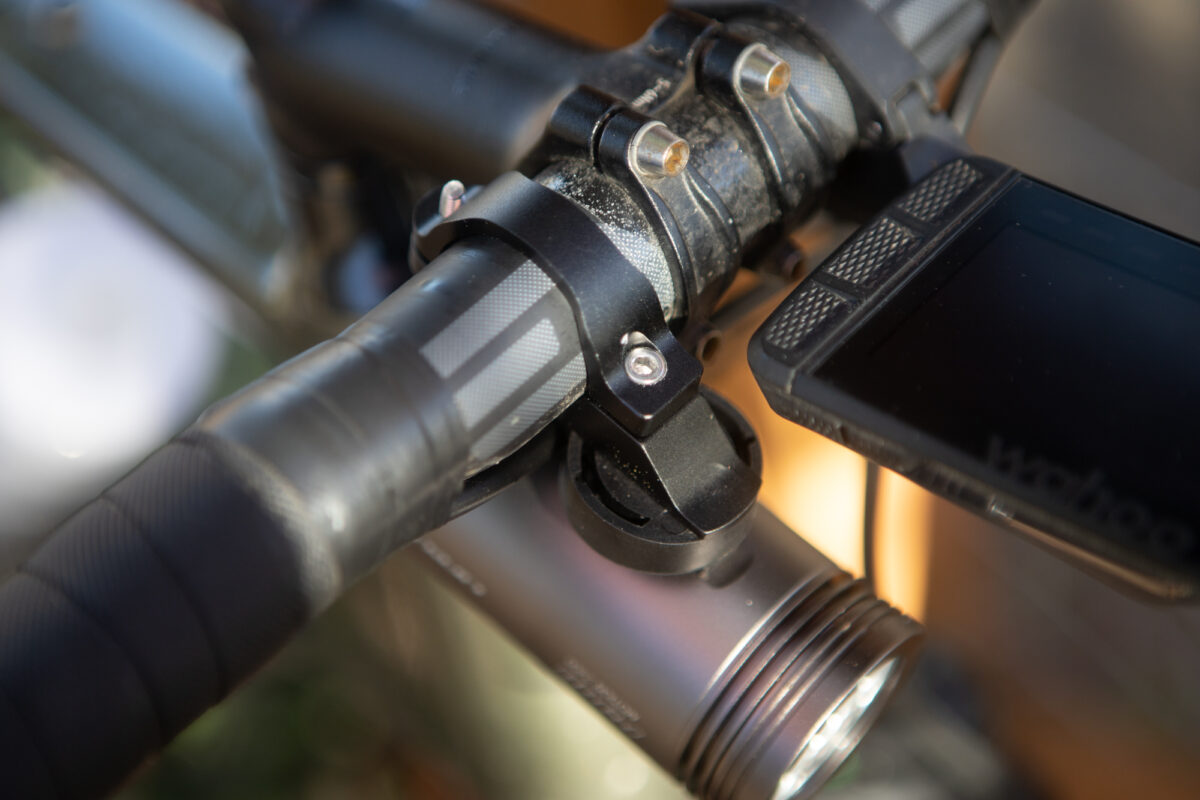
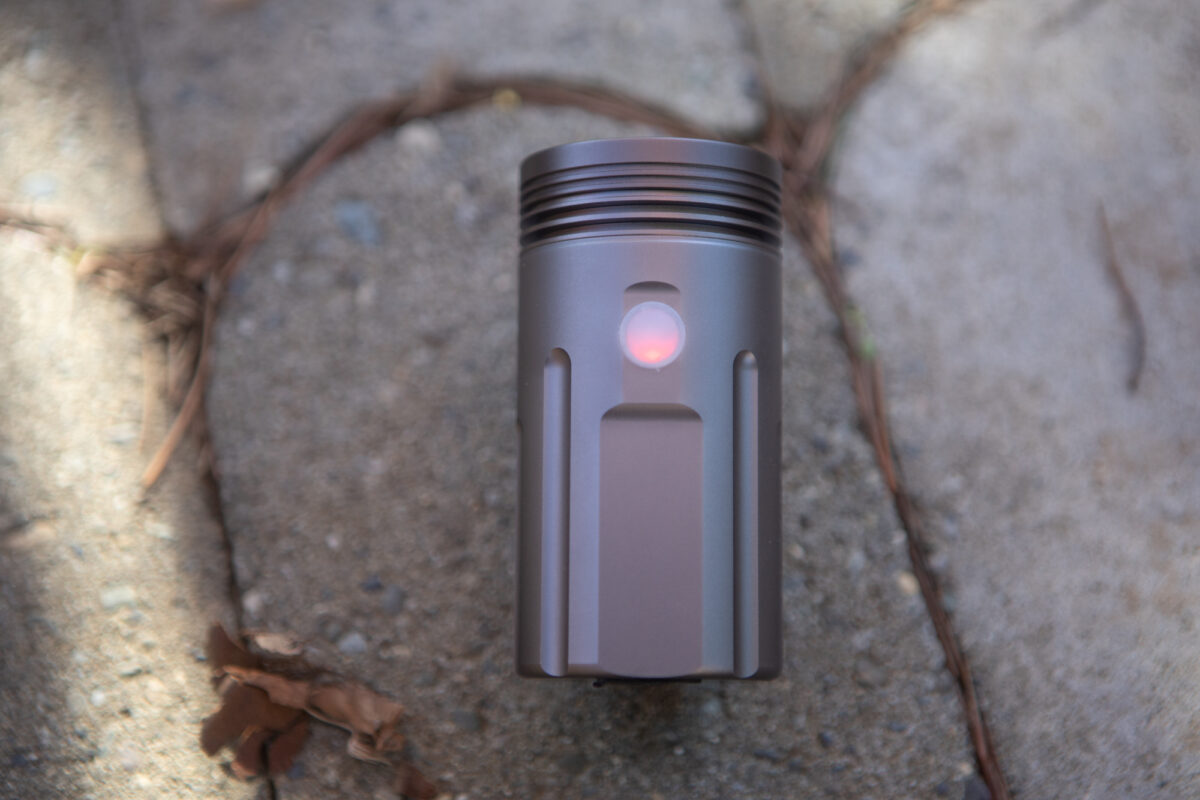
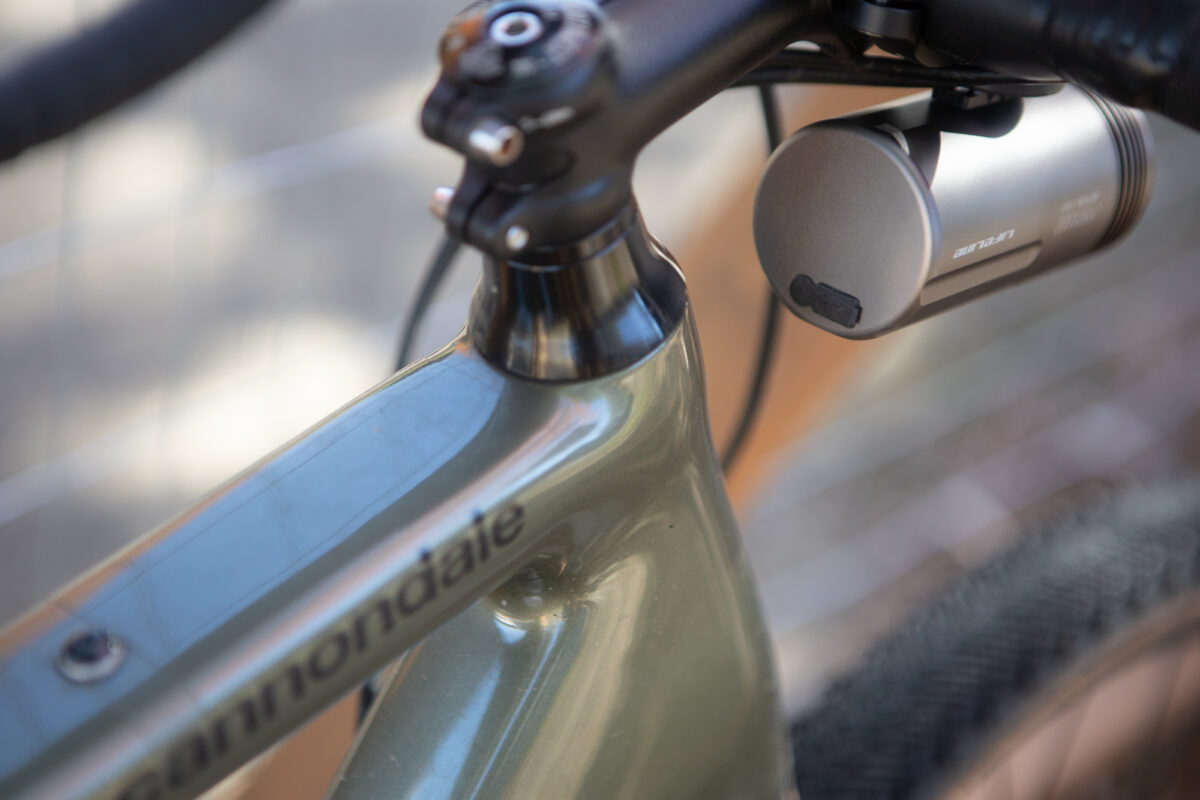
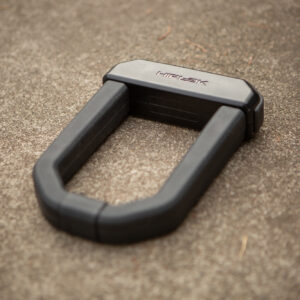
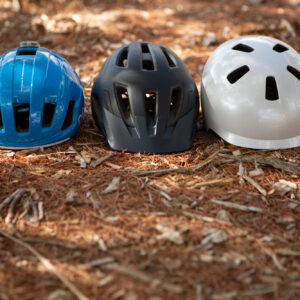


Thanks for reading.
BikePortland has served this community with independent community journalism since 2005. We rely on subscriptions from readers like you to survive. Your financial support is vital in keeping this valuable resource alive and well.
Please subscribe today to strengthen and expand our work.
Please, please, do not shine your mega lights at our eyes. Dark, wet pavement with soggy leafed lack of friction are already increased risk factors without glare added to the mix. Then there’s black ice….. and impaired drivers …
You can see in the photos its in the best orientation to prevent that, under the bars with a ~20 degree downward angle.
I was going to comment that is my favorite way to mount a “see the road” light.
I find that if the light is in a position to blind drivers then it’s also too high to be useful. It needs to be pointed down fairly close to the front tire or I just don’t feel comfortable moving all that fast. In this case it’s not only pointed down but the whole point of the review is how you don’t actually use it at full power but power it down to half power so you can benefit from crazy long battery life.
Unfortunately I find the opposite. If I point my light down at all, it creates a bright spot on the pavement front of me. This just serves to blind my night vision from seeing much of anything else. If I point it straight ahead, it provides even lighting over the 50 feet or so in front of me. When I’m riding at even moderate speed, I really want to be looking 20+ feet ahead of me at all times, not straight down in front of me. I know that this orientation is bad for other road users, but it seems like my only option. A bright spot of light on the road 5-10 feet in front of me doesn’t really help me at all, and just blinds me to everything else.
What kind of power do you usually run your lights at?
Spec says 350 lumens, but I’ve had this experience with dimmer lights too.
I don’t think 350 lumens is enough. Get up to 800 lumens and you won’t have as hard a time.
Sorry for a little glare, but if it means me not riding into a pothole or nasty rut (like I have painfully done before) I’m gonna run that mega light for all it’s worth.
It is amazing to me that it is completely normal when driving to dim brights when encountering another driver, but it is entirely rare for riders to do the same thing. Unsurprisingly, some of the worst offenders are ebike riders with obscene amounts of lumens blasting all hours of the day. It really doesn’t take much to angle the light away from another rider, or just put a hand over it right as you ride by.
Bike lights have come so far in the last decade. I remember paying a few hundred dollars for a 400 lumen light that had a huge battery pack you had to strap to your frame. Now you can get a 500 lumen lite that is tiny for $30-50.
Absolutely. It’s pretty incredible what lithium ion batteries and LED units have brought us.
It was worse than that. The battery packs would start to die after not that much use. And rear lights were usually non-rechargeable, which is why running rear lights in the daylight is more of a newer thing.
So, what about beam shape and size of the lens?
I find a nice large diameter lens, preferably with a horizontal diffuser and a bit of tape at the top dramatically reduces the annoyance factor for other road/path users.
I was really disappointed in my latest light – it causes complaints at 500 lumens that the previous one didn’t at 600 due to poor design. (I find 500 about minimum to see a dark clothed walker far enough away up a dark path)
I don’t tend to review beam shape that much because I find them all pretty similar as long as they are designed for the use. Mountain bike lights and road lights have a different shape but as long as I stick to a road light I’ve never had issues. I mentioned in a reply up above, that I like to keep the center of the beam very close to the front of the tire. In that configuration, blinding people is just not an issue. Since you are interested though, each LED gets it’s own little bump in the lens and the beam shape is rounded with a bright center. You don’t get much preferipheral light just like most road specific beams.
For $170 it’s a shame that the beam is not shaped with a sharp cut-off, like all lights sold in Germany and the Netherlands, and all car headlights. For almost same price you can get a Busch und Muller battery powered headlight with 100 lux max from a properly shaped beam: https://www.dutchbikebits.com/lights/busch-und-muller-iq-speed-headlight
Or for less than $100 you can get a 50 lux handlebar mount lithium battery light: https://www.dutchbikebits.com/lights/busch-und-muller-lumotec-ixon-front-light
These have more light farther away on the road so illumination is correct, but a sharp cut-off of light so it doesn’t dazzle oncoming cyclists going the other way. The work like the excellent B&M dynamo lights which you see all over town.
I love hearing from everybody and exploring all the different suggestions. As far as I can tell, that first light you referenced is an 80 lux light. Lux is all about area but I’m guessing the very bightest area is what they are saying is 80 lux. That’s a small spot, seems like a 4ft radius would be a reasonable guess as to how large. If those assumptions are true that puts the light at around 400 lumens. You’d have to get all the way up to a 10 foot circle of 80 lux to match power with this light. Seems like it’s not the comparable in brightness.
The other thing about that light is that it’s a Ni-Mh battery. 2100 mh with a 5 hour burn time at 400ish lumens is actually very good in terms of a package. Most lights that max out at 400 also have small batteries.
As for the sharp cutoff, it’s an interesting idea. I actually hate having the center of the light far up the road. I prefer it to be pretty close to my wheel and let the fall off light farther ahead. I’d be curious to see how it feels to use something with a sharp cutoff and aim it farther out.
Definitely some interesting suggestions. Doesn’t look like they compare all that closely but it’s some nice stuff.
Josh – when you do get ready to “share a buyer’s guide” that you are writing, I would suggest that you try a StVZO compliant bike headlamp…since the issue of ‘misused’ /overpowered / poorly designed bike headlamps has become critical on many roads in the last 10 years…too many bicycles now are almost as bad as jacked up trucks with misaligned / overpowered off road headlamps.
There are now more battery powered bike lamps with StVZO certification (vs 10 years ago)…some examples from the internet ($$ & $$$): https://ride.lezyne.com/collections/led-lights-stvzo
https://www.lupinenorthamerica.com/searchadvanced.asp?searchfor=StVZO&csess=1
As mentioned by others: The beam cut off feature and shape of the light cone on the pavement are key for sharing the night road in Portland and other bikie cities…the StVZO classified headlights (approved for Germany etc.) tend to do this best and efficiently.
Cycle Lighting Resources:
https://www.sheldonbrown.com/LED-headlights.html
https://www.peterwhitecycles.com/headlights.php
Aim your light down and if you are using it on the road it should be a road specific light. Follow that advice and you’ll be good.
Nice review but — I never pay much attention to bike light reviews, because by the time you’re ready to buy the reviewed light, some newer and probably better model by some other manufacturer is already out. My advice: don’t buy the light, buy the MOUNT. Having said that, I’m not a brand-loyalty guy, yet Cateye has earned my loyalty after decades of their not necessarily offering the very best lights, but always having really good lights at a good value. I’m also intrigued by Cygolight because commentators so often praise them.
The next couple of lights I’ll highlight are better mounts paired with worse lights. I think there’s a balance.
Are there helmet mounts for this light? What does it weigh? I prefer having my bright light and flashing red on my helmet so I never forget to take it (I currently use various Cygo lights of different luminosities, usually 700 to 950).
Helmet lights are really pointed too high for safe commuting and road riding. Please do not use helmet lights. I know this will be a controversial comment but blinding drivers and fellow riders is extremely unsafe. Thank you for reading.
But helmet lights to be seen are good, right? They don’t have to be blindingly bright.
There’s no helmet mount and this would not be a good choice even if you could get it up there. It’s a big light.
The light itself is easy to take on and off the bike. Wish the bracket was the same. If you switch bikes often (as I do) it means trying to find another bracket and leave one on each bike, as changing the bracket is time consuming and requires an allen wrench.
It’s a powerful light and easy to use. Find the 2nd lowest setting adequate for quiet roads, and can quickly power up to be seen in traffic.